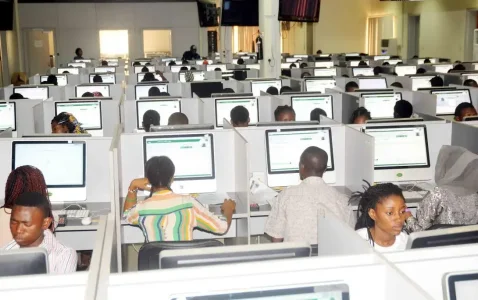
Nigeria affirms fair trial for detained Binance executive amid U.S. lawmakers' concerns. The government defends its actions, citing due process, while the U.S. seeks intervention over alleged unjust detention and health concerns.
The Federal Government of Nigeria finds itself embroiled in a high-stakes international controversy surrounding the detention of Tigran Gambaryan, a top executive of the cryptocurrency platform Binance. Amidst mounting pressure from United States lawmakers and allegations of unjust treatment, the Nigerian authorities have affirmed their commitment to upholding due process and adhering to the rule of law.
The case, which has garnered global attention, centers on accusations of illegal cryptocurrency trading and financial crimes leveled against Binance and Gambaryan, a U.S. citizen. The government's decision to arrest and detain Gambaryan has drawn sharp criticism from a bipartisan group of U.S. lawmakers, who have questioned the legitimacy of the charges and expressed concerns over the executive's well-being.
In a letter addressed to President Joe Biden, Secretary of State Antony Blinken, and the Presidential Envoy for Hostage Affairs, the lawmakers urgently requested intervention, asserting that Gambaryan's detention meets the criteria for being "wrongfully detained by a foreign government." They have called for swift action to ensure his safety and preserve his life, fearing for his deteriorating health conditions within the Nigerian prison system.
However, the Nigerian government, through the Minister of Information and National Orientation, Mohammed Idris, has staunchly defended its actions, emphasizing that due process has been followed at all stages of the legal proceedings. Idris stated that prosecutors are confident in their case based on the evidence gathered and that Binance will have the opportunity to defend itself against the severe financial crime charges during the next hearing scheduled for June 20, 2024.
The minister further confirmed that Binance and Gambaryan have been provided with consular access and all necessary care in line with diplomatic protocols and the rule of law, seeking to allay concerns raised by the U.S. lawmakers.
As the legal battle intensifies, the case has also ignited a broader debate surrounding cryptocurrency regulation in Nigeria. The country has taken steps to establish a regulatory framework for digital assets, but critics argue that the rules remain ambiguous and open to abuse, potentially stifling innovation and deterring foreign investment in the burgeoning fintech sector.
With the eyes of the international community fixed on this unfolding saga, the Federal Government of Nigeria faces a delicate balancing act – upholding the integrity of its legal system while maintaining a favorable investment climate and fostering diplomatic relations with key allies.




